Jan-David Krieger
Exploiting Transformer-based Multitask Learning for the Detection of Media Bias in News Articles
Nov 07, 2022Abstract:Media has a substantial impact on the public perception of events. A one-sided or polarizing perspective on any topic is usually described as media bias. One of the ways how bias in news articles can be introduced is by altering word choice. Biased word choices are not always obvious, nor do they exhibit high context-dependency. Hence, detecting bias is often difficult. We propose a Transformer-based deep learning architecture trained via Multi-Task Learning using six bias-related data sets to tackle the media bias detection problem. Our best-performing implementation achieves a macro $F_{1}$ of 0.776, a performance boost of 3\% compared to our baseline, outperforming existing methods. Our results indicate Multi-Task Learning as a promising alternative to improve existing baseline models in identifying slanted reporting.
Neural Media Bias Detection Using Distant Supervision With BABE -- Bias Annotations By Experts
Sep 29, 2022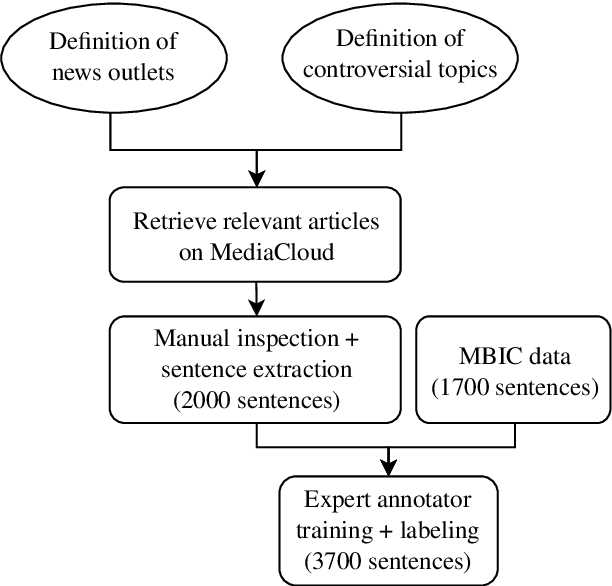
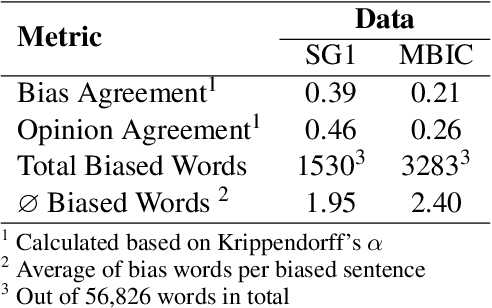
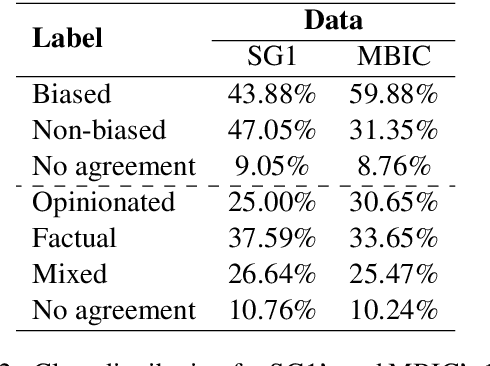
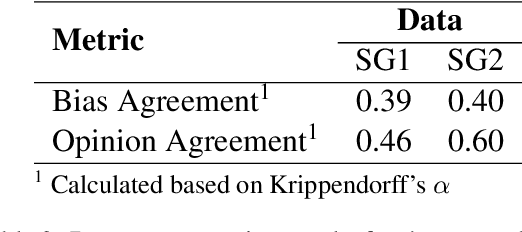
Abstract:Media coverage has a substantial effect on the public perception of events. Nevertheless, media outlets are often biased. One way to bias news articles is by altering the word choice. The automatic identification of bias by word choice is challenging, primarily due to the lack of a gold standard data set and high context dependencies. This paper presents BABE, a robust and diverse data set created by trained experts, for media bias research. We also analyze why expert labeling is essential within this domain. Our data set offers better annotation quality and higher inter-annotator agreement than existing work. It consists of 3,700 sentences balanced among topics and outlets, containing media bias labels on the word and sentence level. Based on our data, we also introduce a way to detect bias-inducing sentences in news articles automatically. Our best performing BERT-based model is pre-trained on a larger corpus consisting of distant labels. Fine-tuning and evaluating the model on our proposed supervised data set, we achieve a macro F1-score of 0.804, outperforming existing methods.
* arXiv admin note: substantial text overlap with arXiv:2112.13352
A Domain-adaptive Pre-training Approach for Language Bias Detection in News
May 22, 2022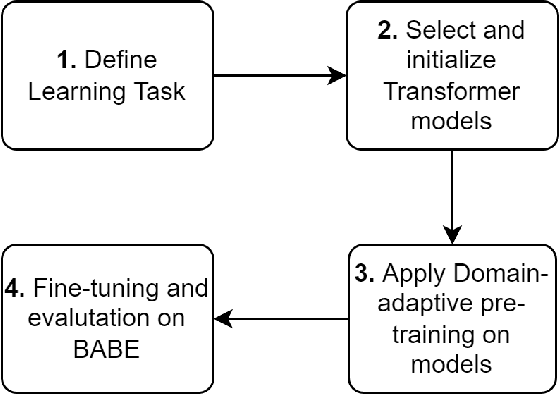
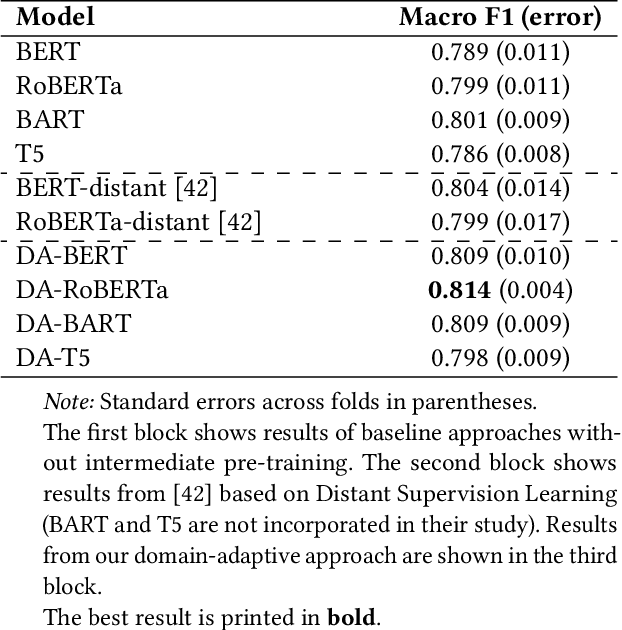
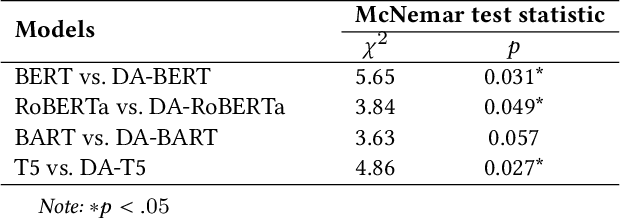
Abstract:Media bias is a multi-faceted construct influencing individual behavior and collective decision-making. Slanted news reporting is the result of one-sided and polarized writing which can occur in various forms. In this work, we focus on an important form of media bias, i.e. bias by word choice. Detecting biased word choices is a challenging task due to its linguistic complexity and the lack of representative gold-standard corpora. We present DA-RoBERTa, a new state-of-the-art transformer-based model adapted to the media bias domain which identifies sentence-level bias with an F1 score of 0.814. In addition, we also train, DA-BERT and DA-BART, two more transformer models adapted to the bias domain. Our proposed domain-adapted models outperform prior bias detection approaches on the same data.
 Add to Chrome
Add to Chrome Add to Firefox
Add to Firefox Add to Edge
Add to Edge